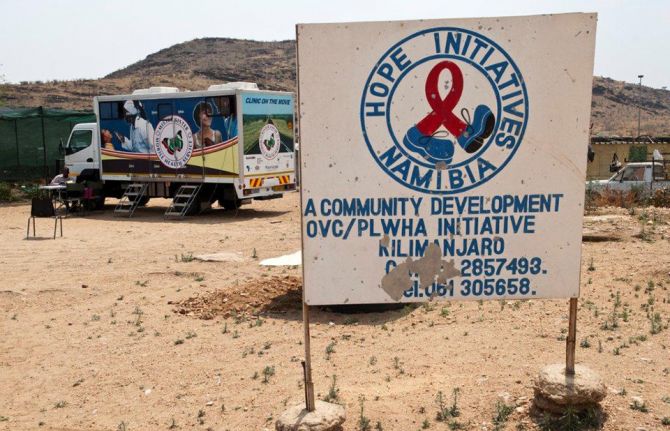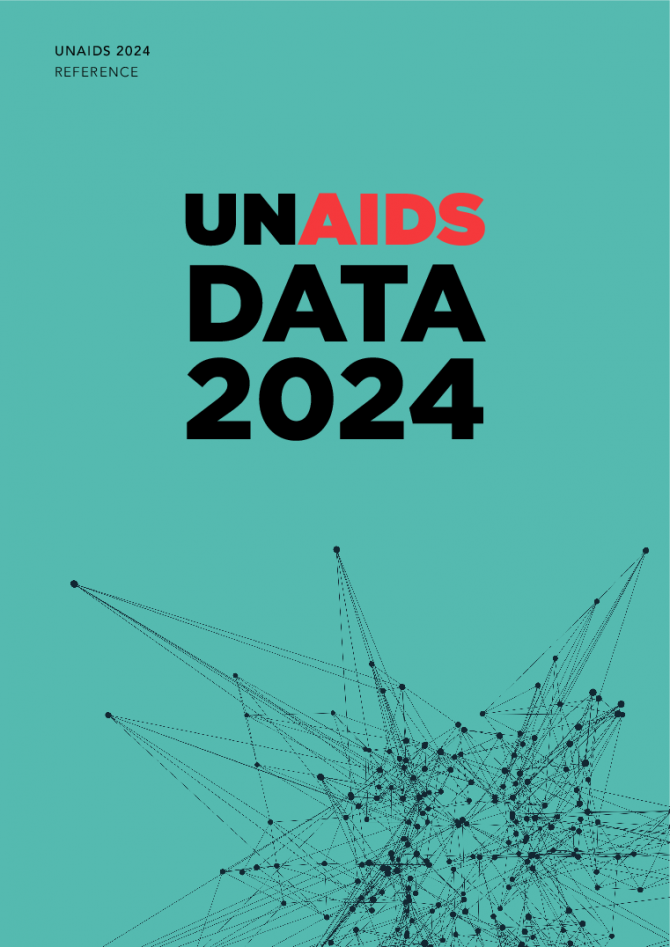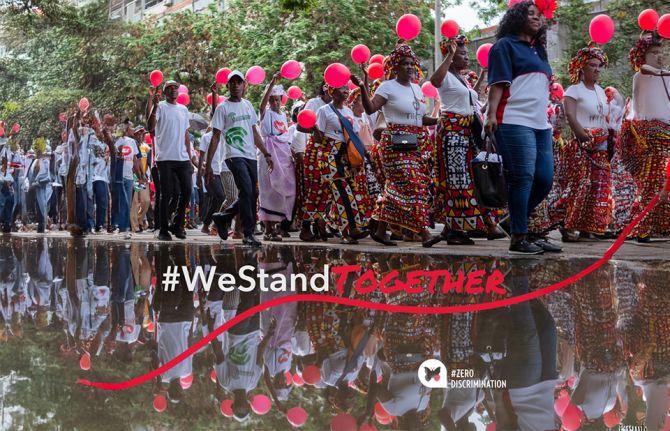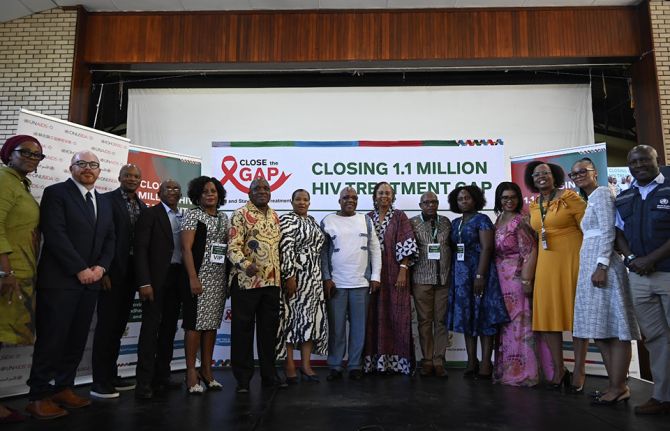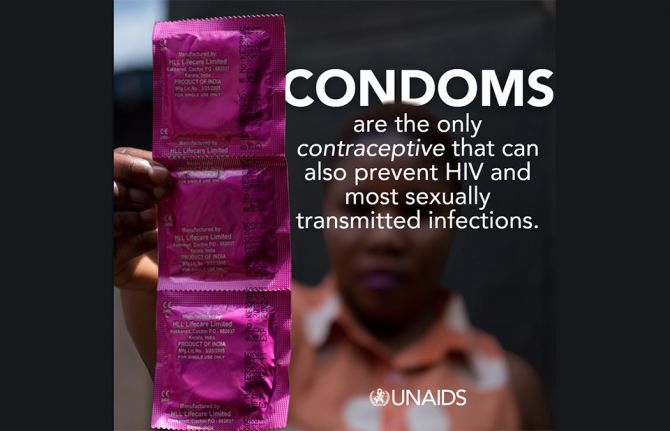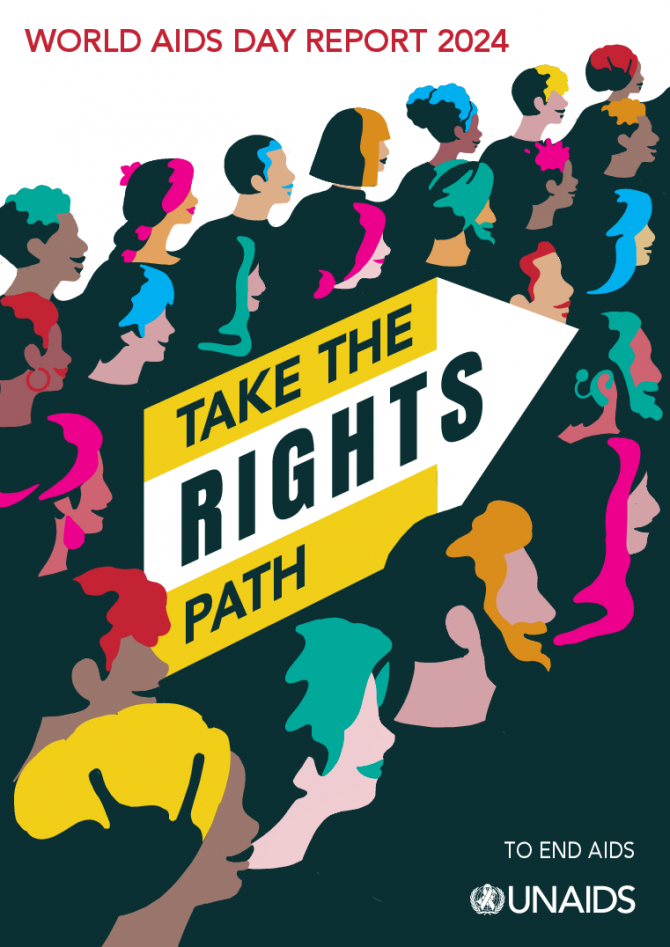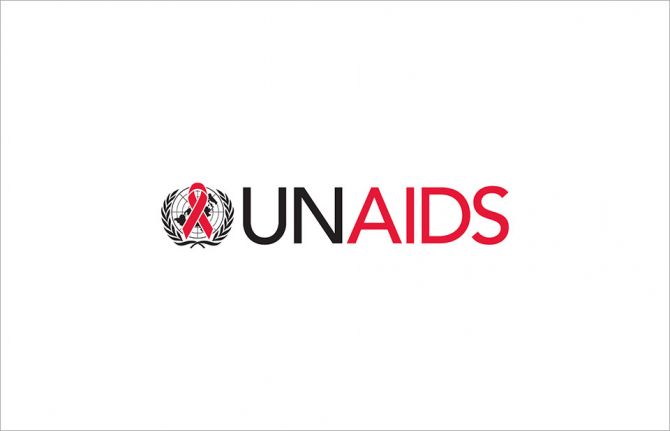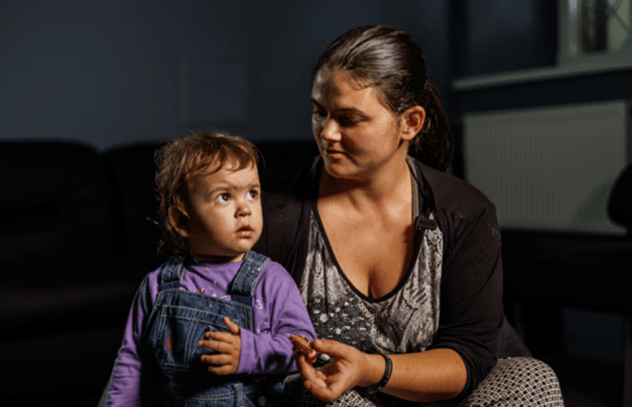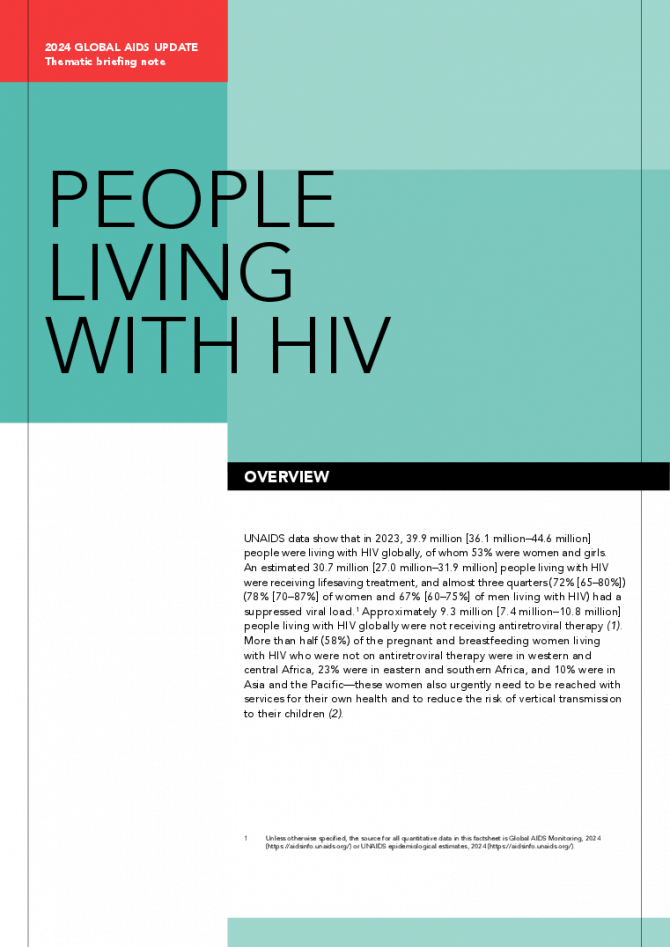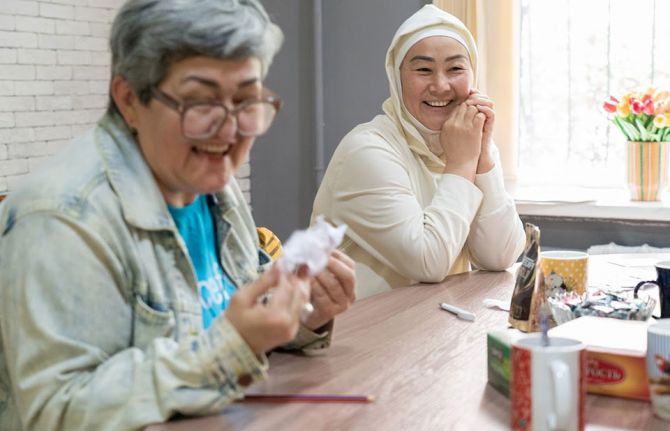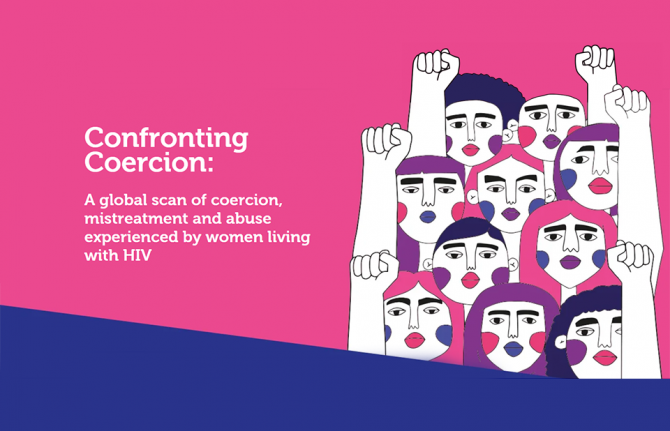PLHIV


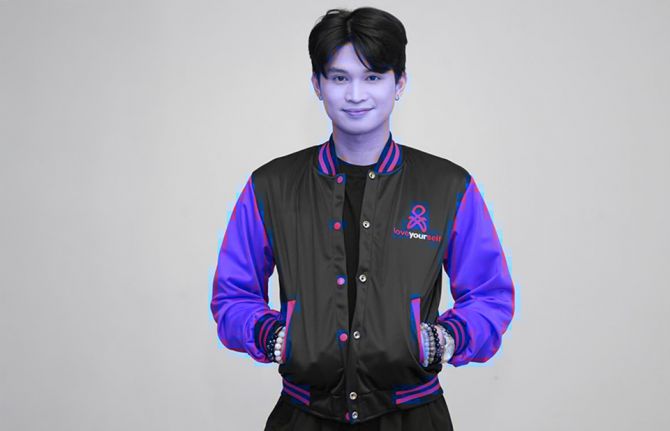

Feature Story
U=U can help end HIV stigma and discrimination. Here’s how
27 February 2025
27 February 2025 27 February 2025Adrian Lindayag, a Philippines actor, learned he was living with HIV in 2017. But even before then, he’d felt the weight of the disease.
“I’ve lost friends to AIDS, and that is because of the shame and stigma surrounding the virus… the lack of education because they were afraid to get tested. Or, if they did get tested, they just gave up on their dreams, gave up on their lives.”
At first, he only discussed his diagnosis with his family and medical team. But last year he made the decision to go public, becoming a LoveYourself U=U Ambassador.
U=U is short for Undetectable = Untransmittable. It means that when a person living with HIV, adheres to effective antiretroviral treatment, the virus in their blood reduces to a level that is undectable, bringing the chance of passing the virus on to zero.
“I honestly didn't know about the concept of U=U before learning about my HIV status. It was my doctor who told me about it, and it changed my life radically. It gave me hope that I'll be able to still live a normal and healthy life,” Mr. Lindayag explained.
Dr. Jakkrapatara Fair Boonruang is a research physician at the Institute of HIV Research and Innovation (IHRI) in Bangkok, Thailand. He reflects that U=U has transformed the way he counsels newly diagnosed patients.
“U=U changed my clients’ lives,” he said. “Before, providers would advise them that antiretroviral treatment will keep them alive and healthy. But there was no sense of returning to who they were before the infections. U=U actually changes that. It means they can fully enjoy sexual intimacy, and mothers can deliver their babies without the fear of transmitting the virus. It has been a mantle of hope and empowerment.”
In 2014, Thai researchers joined peers in Australia and Brazil for the Opposites Attract Study. That research tracked couples in which one person was HIV-negative and the other was living with HIV but had achieved an undetectable viral load through successful treatment. It confirmed that after two years of unprotected sex, there were no cases of HIV transmission between more than 300 couples.
Although the U=U concept has been established as scientific fact for over a decade, the word has not gotten out to the wider world. Even some people living with HIV weren’t informed during counselling. Bella Aubree, an Indonesian activist, is one of them. When she learned her HIV status at age 16, she wondered whether she would die soon. She learned about U=U online and the message gave her hope.
“At the time I felt bored with taking ARVs (antiretroviral therapy) every day. But my motivation came from knowing at some point I will be undetectable, which means untransmittable,” she explained.
For Shan Ali, a Dostana Society peer counsellor from Pakistan, while the U=U concept has transformed his health and outlook, the knowledge hasn’t shifted attitudes among his family members.
“In Pakistan right now there are only two sets of people who know about U=U. One is the service providers and the other is people living with HIV. The general public has no idea,” Mr Ali explained. “I have tried bringing my family in for counseling, but they still discriminate towards me. They even make me eat with separate utensils. I feel very isolated and stigmatized. But in my work with community, I feel a sense of purpose.”
Karun Lama, a communications specialist for the Seven Alliance, is HIV-negative but lost both her parents to AIDS. For her, U=U holds the promise of a regular life and family with her boyfriend who is living with HIV.
“In India, where family and relatives' consent is very important, it was very difficult for us at first to make them understand because my partner's family and relatives were scared and concerned for me. They thought that my partner is putting my life at risk and he should get married to a person living with HIV only. But we've sensitized them about U=U and they have begun to understand that we can also live a life together happily and he won't transmit HIV if his viral load is undetectable,” Ms Lama said.
Eamonn Murphy, Regional Director of UNAIDS Asia Pacific and Eastern Europe Central Asia, saluted the courage of these and other community leaders working to raise awareness about the power of the U=U concept.
“Treatment saves lives. But it can also prevent new infections and transform the way we think about people living with HIV and how they see themselves,” said Mr Murphy. “This Zero Discrimination Day, we recognize the critical role of communities in spreading awareness, supporting adherence and challenging stigma and discrimination. We must ensure this essential work is facilitated and financed.”
With support from communities, researchers and UNAIDS Goodwill Ambassador for Asia and the Pacific, Miss Universe 2015, Pia Alonzo Wurtzbach, UNAIDS is leveraging the U=U message to help end HIV stigma and discrimination. On Zero Discrimination Day (1 March). UNAIDS welcomes everyone to join by sharing these messages and joining the U=U song and dance challenge on social media. #UequalsUDance #EndHIVstigma
UNAIDS RST-AP Goodwill Ambassador Pia Wurtzbach Explain U=U
A fun demo of how U=U impacts HIV transmissions
U=U. What is it and how can it help us end HIV stigma?


Feature Story
How the shift in US funding is threatening both the lives of people affected by HIV and the community groups supporting them
18 February 2025
18 February 2025 18 February 2025On 20 January 2025 the United States announced a 90-day freeze on US foreign aid which has had a devastating impact on people living with and affected by HIV, on the people and organizations supporting them and on the global response to HIV as a whole.
Community organizations have been particularly impacted by the freeze in funding. Community healthcare workers are losing their jobs, clinics are having to be shut down and, as a result, people in need of HIV testing or prevention or who are living with HIV and dependent on daily antiretroviral medicine are unable to access the life-saving HIV services they need.
On 10 February, UNAIDS convened an emergency meeting with community organizations to monitor the impact of the unfolding crisis. Community groups reported that HIV services around the world are facing serious challenges. Some are grinding to a halt. Supplies of antiretroviral medication, pre-exposure prophylaxis (PrEP), post-exposure prophylaxis (PEP) and condoms have been disrupted, leaving many without essential tools of HIV treatment and prevention.
HIV testing kits are increasingly scarce and outreach services – essential for connecting people in need of HIV testing – are being suspended. As a result, HIV and sexually transmitted infection testing are disrupted, threatening detection and prevention efforts.
“The damage is immediate and severe,” said one advocate. “People who rely on [U.S.-funded] programmes for [safety and] survival are suddenly left with nothing.”
The US pause in administering foreign assistance while it reviews recipients is not just a bureaucratic delay; it is a direct threat to continued progress against AIDS and will quickly erode decades of hard-won gains in the global HIV response. It will destroy many community organizations without which the world cannot close the gaps in HIV testing, prevention and treatment.
The US Government has invested more than US$ 100 billion to date in the global fight against AIDS with the US accounting for around 73% of donor funding for HIV worldwide; millions of people at risk for and living with HIV rely on US funded clinics to stay healthy in the face of HIV.
Community-led data reveals community organizations are bearing the brunt of the pause
A survey conducted by the Uganda Key Populations Consortium found that 97% of respondents reported negative effects on their HIV service due to the freeze on US foreign assistance. A staggering 43% of organizations supporting key populations surveyed said they relied on US funding for at least 76% of their budgets.
Another joint survey by Aidsfonds, the Global Network of People Living with HIV (GNP+), and the Robert Carr Fund found similarly worrying results. Of 564 organizations surveyed across 25 countries, 95% reported direct impacts from the US funding freeze. 43% of programmes have paused implementation, while 35% have fully suspended operations.
“The results are alarming,” said Mark Vermeulen, Director of Aidsfonds. “More than half (57%) of the organizations estimate that this crisis will impact more than a million people. The longer these disruptions persist, the greater the risk of a new generation of preventable HIV infections. This threatens to undo the hard-earned progress in reducing new infections among children.” (New HIV infections among children had been reduced by 62% from 2010 to 2023, largely thanks to investment and commitment from the US Government).
It’s not just people living with or at risk for HIV that face an existential threat
The financial void left by the US aid freeze of its foreign assistance is forcing community groups to fire employees and/or to close up shop entirely. Many community organizations do not have sufficient funding reserves to stay afloat through the 90-day (or perhaps longer) period of no US funding.
“The leadership of national networks of people living with HIV have been forced to let go of community cadre staff- peer educators, adherence counselors, community health facilitators, and mentor mothers,” said Florence Anam, Co-executive Director of GNP+.
GNP+ recently convened with leaders from national and regional networks of people living with HIV and released a statement with the main concerns.
“These organizations are not a luxury – they are critical for ending AIDS,” said Christine Stegling, Deputy Executive Director, UNAIDS. “Serving as advocates, peer educators, care providers and watchdogs, community-led organizations ensure that lifesaving HIV testing, prevention and treatment reaches those most in need.”
Many organizations have spent years garnering the trust of the communities they serve. If these organizations disappear, even if others replace them one day, it will take years to reestablish the bonds of trust that allow them to be so instrumental in encouraging people to seek HIV care.
In a joint survey by Aidsfonds, GNP+ and the Robert Carr Fund 22% of organizations reported increased experiences of discrimination, including reports of discrimination within healthcare settings, where people faced barriers to accessing care.
LGBTQ+ communities in need of HIV testing, prevention and treatment fear increased risks of violence and discrimination as funding for protective services – led by HIV community groups – disappear.
Since the earliest days of the AIDS pandemic, communities and community-led services have been instrumental in ensuring equitable, accessible HIV testing, prevention and treatment – as well as the supportive services that make all three possible.
Communities have been at the forefront, driving the delivery of comprehensive care, life-saving treatment and offering regular monitoring and prevention services and psychosocial support. Their unwavering dedication has not only saved millions of lives but also reshaped the trajectory of the AIDS pandemic. Their leadership and work on HIV are a model for all other responses to communicable diseases.
By paralyzing frontline response efforts led by community groups, the US decision to freeze funding is weakening health systems across the Global South. The freeze not only jeopardizes precious gains made to date against HIV – it also threatens to usher in a new wave of entirely preventable HIV infections and AIDS-related deaths.
The community groups stressed that this crisis extends beyond HIV treatment. The funding cuts impact efforts to provide clean water, basic education and to prevent human trafficking of girls. The loss of funding is dismantling the fragile safety net that has been built over decades around the world
“We are deeply concerned about the sustainability of the HIV response, particularly support for key populations, HIV prevention, human rights and community led responses. We are re-orienting our own efforts to support the communities and organizations that are both bearing the brunt of the loss of funding and facing targeted attacks on their rights and their very lives,” said John Plastow, Executive Director of Frontline AIDS, a global partnership, headquartered in the UK and South Africa, that works with 60 partners across 100 countries around the world. Over 20 of their partners have said they are affected by the US foreign aid freeze.
Since the US funding freeze on foreign assistance was announced, UNAIDS has conducted daily assessments led by its regional and country teams to track disruptions and to relay urgent needs to donors and to governments of affected countries. At country and regional levels, UNAIDS has also been convening people living with HIV and other affected communities to assess the impact and discuss mitigation measures. For the latest updates: Impact of recent U.S. shifts on the global HIV response - The global impact of PEPFAR to date | UNAIDS
UNAIDS stands in solidarity with community leaders calling on the US, other donors and governments of affected countries to step in before irreversible damage is done. UNAIDS and communities call on the US to maintain its global leadership on, and unparalleled support for the global response to AIDS. Without immediate intervention, decades of progress in the global HIV response will be undone, leaving the world on the precipice of a public health disaster that we have the power and tools to avert.

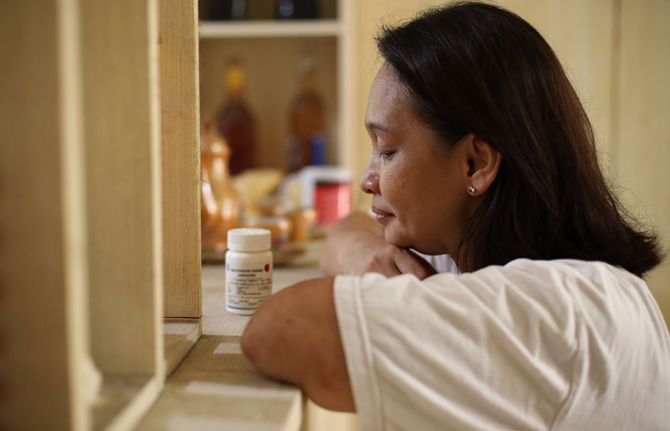
Feature Story
Lost and link: Indonesian initiative to find people living with HIV who stopped their treatment
21 January 2025
21 January 2025 21 January 2025Grabbing his helmet, Hadi Timotius gets in the back of his colleague’s scooter to pay a routine visit to a woman who is taking her HIV treatment again. Hadi oversees the ‘Lost and Link’ initiative at JIP, a national network of people living with HIV in Indonesia.
Region/country
Related
Documents
UNAIDS data 2024
02 December 2024
Suggested citation. UNAIDS DATA 2024. Geneva: Joint United Nations Programme on HIV/AIDS; 2024. Licence: CC BY-NC-SA 3.0 IGO. Related: The 2024 global AIDS report The Urgency of Now: AIDS at a Crossroads, released 22 July 2024, is available here.
Related
 U=U can help end HIV stigma and discrimination. Here’s how
U=U can help end HIV stigma and discrimination. Here’s how

27 February 2025
 How the shift in US funding is threatening both the lives of people affected by HIV and the community groups supporting them
How the shift in US funding is threatening both the lives of people affected by HIV and the community groups supporting them

18 February 2025
Documents
Take the rights path to end AIDS — World AIDS Day report 2024
26 November 2024
The world’s decades-long response to HIV is at an inflection point. Despite successes, the world is currently not on track to end AIDS as a public health threat by 2030. Press release | Download full report | Download short version
Related
 U=U can help end HIV stigma and discrimination. Here’s how
U=U can help end HIV stigma and discrimination. Here’s how

27 February 2025
 How the shift in US funding is threatening both the lives of people affected by HIV and the community groups supporting them
How the shift in US funding is threatening both the lives of people affected by HIV and the community groups supporting them

18 February 2025

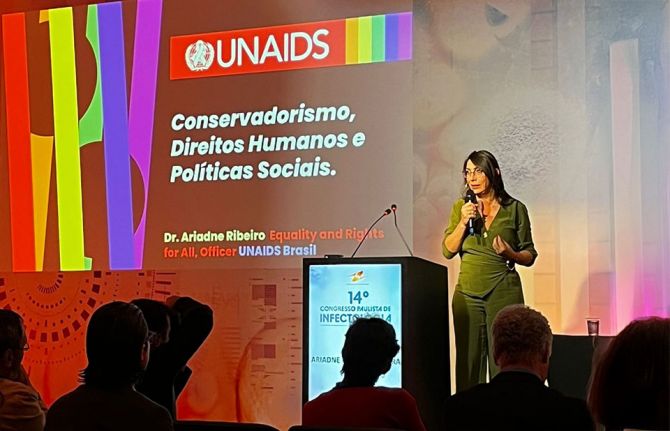
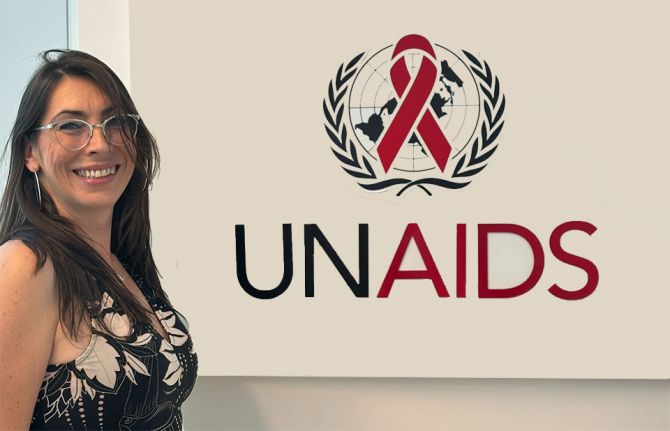
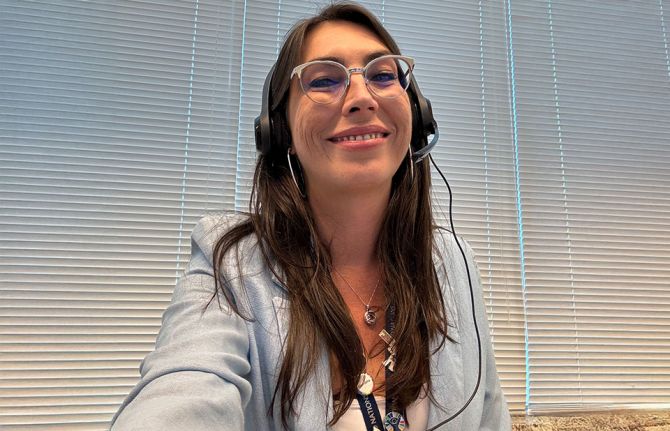
Feature Story
Upholding dignity for everyone: Ariadne Ribeiro Ferreira
21 November 2024
21 November 2024 21 November 2024Now 43 years old, Ariadne Ribeiro Ferreira, a trans woman working for UNAIDS in Brazil, advocates to leaders and speaks to media around the world. As she is an inspiration to colleagues, many are keen to learn more about Ariadne’s story.
From a young age, Ariadne sensed that she was different from those around her. “When my sister arrived, I understood, as a child, that I was like her,” Ariadne recalls.
Ariadne's situation, already challenging, became dangerous when her mother remarried. “My stepfather would beat me almost every day, berating me for my lifestyle,” she recalls.
At just 13, Ariadne was forced to flee her home. "I had no choice," she remembers. Despite these difficulties, she was fortunate to have a caring grandmother who took her in and provided support. “My grandmother was different from the rest of the family. She was like a teacher to me,” Ariadne reflects. Her grandma had a transgender friend named Zeze, an activist who also inspired her.
At the age of eighteen while living with her grandmother, Ariadne’s life took a turn when she heard on the radio that a local hospital would begin offering sex change surgeries with state support. “My grandma was overjoyed at the news and danced for me,” Ariadne recalls with a smile. Shortly after Ariadne began her transition.
However, that same year she experienced a traumatic event when she contracted HIV after being raped. Despite this devastating ordeal, she refused to give up. She began treatment and continued her life with determination and resilience.
By the age of 24, she had completed all her surgeries, and she had been legally registered a woman. Ariadne officially changed her name on all her documents.
She pursued education to open up opportunities. “I had the chance to specialize at UNIFESP, the second-best university in Brazil. Since then, I have continued my education, earning a specialization, a master’s degree, and recently a Ph.D.”
Ariadne began her healthcare career in Itanhaém, where she worked in a peer education program at a health facility and contributed to a cooperation agreement with the State Government. “I focused on HIV prevention programs, gaining visibility as one of the few transgender professionals at the time,” she explains. “This recognition opened up new opportunities for me.”
Reflecting on her proudest achievements, Ariadne highlights her work with homeless individuals in São Paulo, Brazil and her role in establishing the state’s first shelter for homeless transgender people. Following these accomplishments, she joined UNAIDS in 2019, where she continues to advocate for transgender rights and supports people living with and affected by HIV, using her voice to uplift and empower others.
Ariadne's makes use of her extensive experience to champion the rights and well-being of everyone living with HIV, including UN staff. Working with UN Plus, she is pioneering innovative strategies to uphold dignity in every workplace. Building a future free from stigma and discrimination, say Ariadne and UN Plus, is how to enable everyone to perform at their best, and to thrive.
Region/country
Related

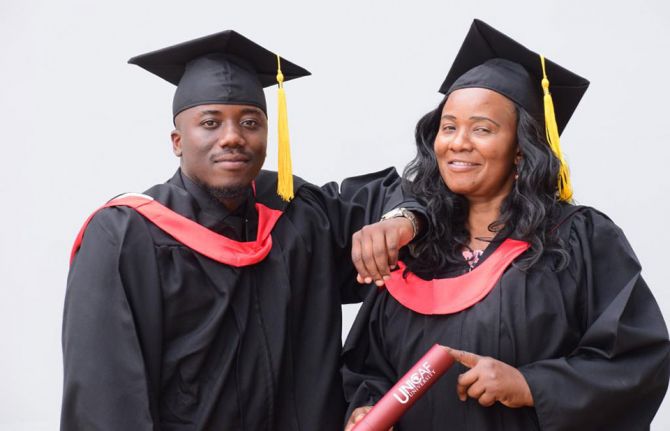
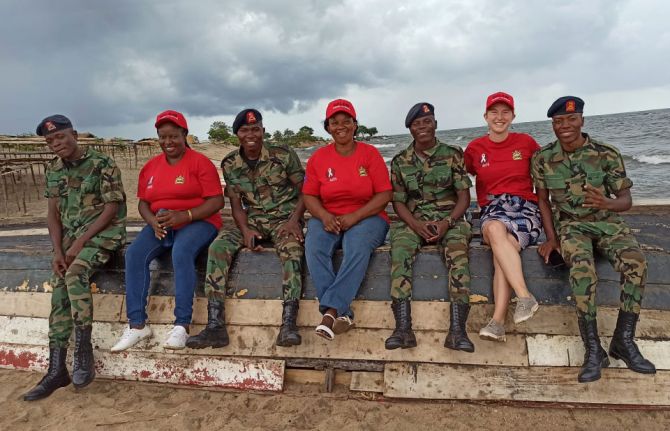
Feature Story
Evelyn Siula: A journey of strength and solidarity
18 November 2024
18 November 2024 18 November 2024After Evelyn Siula’s husband died, she knew she had to get tested for HIV. The result came back as positive.
"I had prepared myself mentally for either outcome, but it was still a shock."
She was jobless and with three children to care for.
The stigma and discrimination surrounding the virus meant that many people were scared to disclose their status. "I had three friends whose families rejected them because their HIV status became known,” Evelyn shares.
But Evelyn chose to break the silence early, starting by telling her young daughter. Family support played a crucial role in Evelyn’s journey. Her family stood by her, offering constant encouragement and strength, vital for getting through the many challenges.
Stigma followed Evelyn. She recalls a particularly painful moment: “At a community gathering, someone pointed at me and asked, ‘Can you believe she’s HIV-positive?’ It was one of the worst experiences being talked about like that.”
Evelyn became a strong advocate for people living with HIV, standing up to stigma everywhere, including in her church. At a gathering in a church, when a speaker criticized people living with HIV, she shared her own status as HIV-positive and as a church elder. Her openness has helped challenge stigma and gain support. Through her work she learned that many fellow church members were struggling in silence, and so helped create the Livingstonia Synod Positive Christians group, known as LISAP+.
Despite her bold advocacy, Evelyn acknowledges how mental health challenges, particularly fear and anxiety, have affected her. “I have thoughts like: ‘What if something happens to me? What if I die?’ I worry about my children and how they would manage without me. These are the fears that raise my blood pressure.”
But over time, Evelyn’s diagnosis has become not just a challenge but also a source of strength.
Today, Evelyn works for UNAIDS and is the vice chair of the UN Plus Advisory Group. She is proud to show that people living with HIV are leading healthy and productive lives.
She has completed Bachelor’s and Master’s degrees in business administration. “The day I graduated with my Master’s degree was extra special because I graduated alongside my eldest son. It’s rare for a mother and son to share such a moment.”
Evelyn encourages everyone to ensure they know their HIV status as the first step to taking control of their health: “Please get tested. It's just a status. If you're positive, follow the advice of your doctors. There is full life after testing HIV positive. Take your medication religiously, eat well, and live a healthy life.”
“Never stigmatize anyone,” says Eveyln, “because we are all one.”
Region/country

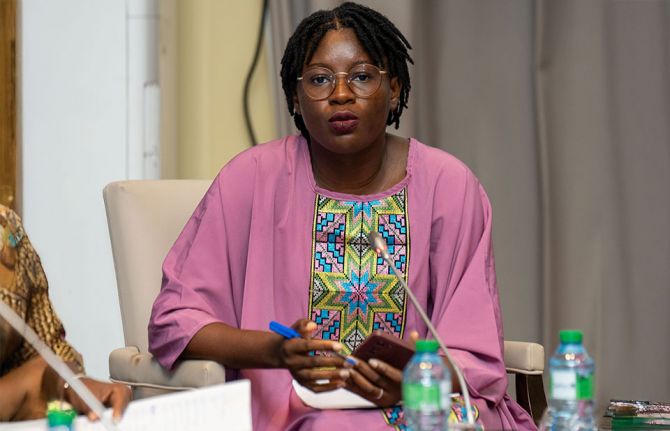
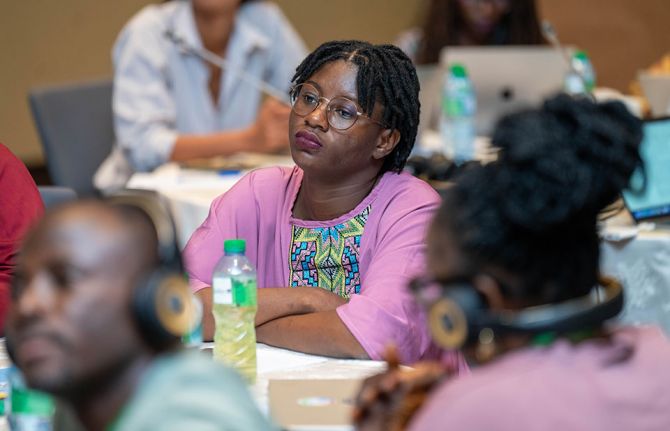
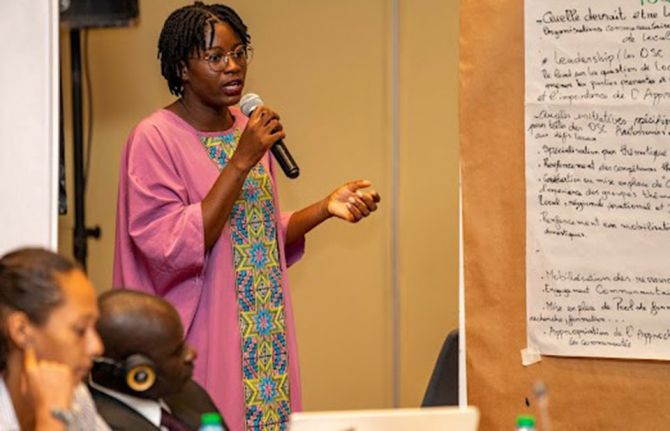
Feature Story
Empowering youth to lead Togo’s HIV response
31 October 2024
31 October 2024 31 October 2024In Togo, youth and adolescents living with HIV are stepping forward to lead the response against the AIDS epidemic. Through resilience, determination, and a collective vision, they have come together to form a new youth-led network called the Network of Positive Children, Adolescents and Youth Innovating for Renewal (REAJIR+), This grassroots initiative is dedicated to amplifying the voices of all children, adolescents and young people affected by HIV, and is a testament to the power of youth leadership in shaping their future. “We felt the need to create a space where young people living with HIV could be heard and represented,” says Sitsope Adjovi Husunukpe, Executive Director and one of the founding members of the network. “Many of us felt that our needs and concerns, although important, were not given priority in the development and implementation of policies and interventions relating to HIV prevention and care.”
The network’s creation was not without problems. In Togo, where leadership is often adult-driven, it took courage and determination to establish an organization run by and for young people. "Even though we faced difficulties, we knew we had to persist," explains Adjovi. "The environment wasn’t always supportive, but we kept believing in the vision of our network. We wanted to ensure that young people living with HIV, from all walks of life, had a space to advocate for their rights."
The need for young people to be involved in the response to HIV in Togo is clear. According to recent reports, only about 26% of young people aged 15-24 have enough knowledge about how to prevent HIV.[1] Children's performance in terms of adherence to HIV treatment is below the general average of 80.5%[2]. At the same time, 6,200 children aged 0 to 14 are living with HIV[3]. In Western and Central Africa, at least 16% of girls and 12% of boys aged 15-24 have sex before they turn 15[4]. These numbers show that more needs to be done to help young people understand HIV to protect themselves.
“Empowering young people goes beyond raising awareness; it’s about unlocking their potential to drive change. When they take ownership of their advocacy, they become catalysts for progress, shaping solutions that resonate in their communities. By equipping them with the right tools, we invest in a future led by those who understand the challenges firsthand.” says Dr Yayé Kanny Diallo, UNAIDS Country Director for Togo and Benin.
Koffi Emmanuel Hounsime, the network’s president, echoes the importance of youth-led advocacy. “At the beginning, people questioned our legitimacy. They asked, ‘Who are you representing?’ But once we formalized our network and built our credibility, we gained respect. Now, when we speak, we speak with authority on behalf of youth living with HIV across the country.”
Despite these hurdles, the network remains committed to its mission. “We are working not just for ourselves but for the future generation of young people living with HIV,” says Adjovi. "We want to ensure that we have better support, better care improving our life quality, and that we feel empowered to take decisions concerning our own well-being."
The network has already made significant strides. It has actively participated in national HIV dialogues and contributed to the development of the new Global Fund HIV grant, ensuring that the priorities of adolescents and young people are included.
For these young leaders, creating the network is about more than just advocacy. It’s about survival, empowerment, and hope. Emmanuel reflects, “We didn’t just create this network to represent young people, we created it to change lives. Every day, we’re working to make sure that no young person living with HIV feels alone.”
[1] AIDS INFO Togo Country Data
[2] Rapport REDES Togo 2023
[3] AIDS Info Togo Country Data
[4] UNESCO Education Report
Our work
Region/country
Related

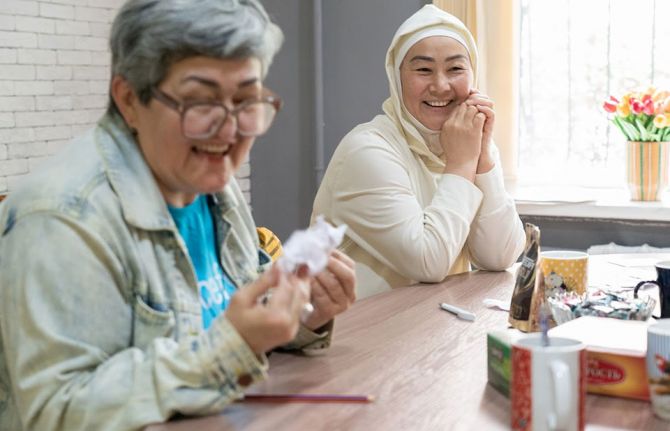
Feature Story
The power of women supporting women - Mentor program for women living with and affected by HIV in Kazakhstan
13 September 2024
13 September 2024 13 September 2024The Mentor programme for women in Kazakhstan was established to empower women living with or affected by HIV by connecting them with mentors who share their life experiences and provide critical support during challenging times. Co-financed by the Ministry of Foreign Affairs of the Republic of Kazakhstan and supported by UNAIDS, the program creates a safe space for women to learn, grow, and draw strength from one another. Through training seminars, support groups, and one-on-one mentoring, it helps women overcome stigma, rebuild their lives, and find their purpose.
Meet three inspiring leaders from this programme—women who never saw themselves as heroes but are, indeed, changing lives.
Halima
Several years ago, Halima found herself at a crisis center for women victims of domestic violence in Almaty, Kazakhstan. She was at rock bottom—diagnosed with HIV, grieving the loss of her second son, and trapped in an abusive marriage with a husband who drank heavily and often turned violent. Raised in a family that valued tradition, Halima felt compelled to keep the peace at all costs, but the weight of her daily life became unbearable.
At her lowest point, an elderly doctor’s advice pushed her into action: “If you want your eldest son to end up in an orphanage, your husband homeless, and you in a mental hospital, you are sadly following that path.” Determined to change her fate, Halima sought help at the crisis center, which she credits with helping her climb out of the “dark hole” of depression.
Today, Halima is helping other women in the mentoring programme. She shares her story with women, believing that her experiences can inspire others to seek life-saving HIV treatment and persevere.
At her lowest point, an elderly doctor’s advice pushed her into action: “If you want your eldest son to end up in an orphanage, your husband homeless, and you in a mental hospital, you are sadly following that path.” Determined to change her fate, Halima sought help at the crisis center, which she credits with helping her climb out of the “dark hole” of depression.
Today, Halima is helping other women in the mentoring programme. She shares her story with women, believing that her experiences can inspire others to seek life-saving HIV treatment and persevere.
"I make sure to give each person my undivided attention so I can explain in simple terms what HIV is, what an undetectable viral load means, and how to get better,” she says.
Her work extends beyond Almaty, reaching women in rural areas where information about HIV and access to services is limited. “I have no special education, but I love learning. While I’m cleaning or mopping the floors, I listen to psychologists and doctors on my headphones,” she says, knowing that every bit of knowledge helps her make a difference.
Lena
“This is a complex group,” says Lena from Pavlodar, Kazakhstan. She works with 17 women in a mentoring programme. Many of the women use drugs, have experienced domestic violence or have been in prison. Lena, aged 55, used drugs for over 20 years, but she has been drug-free for seven years, crediting opioid agonist maintenance therapy for helping her quit.
“I went through all this myself. I remember how it was using drugs: I fell asleep—it’s winter. Woke up—summer,” she says. “If a person comes to therapy out of desperation, does not want to steal or torment their parents and loved ones, this programme can help them.”
The therapy helps mitigate the need for drugs, but Lena emphasizes “it is important that peers and psychologists work with people and prepare them to leave the programme and have access to essential HIV prevention services and treatment”.
After being released from prison nearly a year ago, Lena became a peer consultant in the women’s mentoring programme.
“The problem for many people who use drugs is that they live with HIV and TB but cannot access available services or receive therapy,” Lena explains. Without a home or family, they are invisible to the social protection system and are often driven into desperate situations. “They need a helping hand. They are humans and live next to us."
Lena helps some people register for medical or social support facilities, and others to get treatment. She plans to meet with the akim (mayor) to propose a project to create a support system for people who are left behind. Lena believes there should be no situations where a person is alone and cannot be admitted to a home for disabled or elderly people because they are living with HIV. It is crucial to revise the laws so that everyone is allowed access to social institutions.
Lena is dedicated to the programme. “I am reborn from this work. My eyes light up, and I feel strong and ready to help,” she says.
Zulfiya
Zulfiya, a mother of three who has lived with HIV for nearly 20 years, uses her experience to support adolescents and young women in the program. “My task is to help them accept their diagnosis, start treatment, and stick to their medication,” she explains. She refers women to psychologists, social workers, or lawyers when additional support is needed. Zulfiya understands the denial many women face; she felt it herself two decades ago. Inspired by her son, an activist in the Teenager youth organization for adolescents living with HIV, she found her calling in guiding women who never thought HIV would touch their lives.
Connecting women with other women in a predominantly male-dominated society is the foundation of the mentoring program. “Women in Kazakhstan are often forced to solve a wide range of problems themselves, whether it’s financial difficulties, lack of help, or protection from violence,” says Elena Rastokina, coordinator of the Mentor Programme for Women. “They are not used to uniting in women’s communities, do not know how to ask for help, and often do not know their rights.” Despite the challenges, she is immensely proud of what the mentors have achieved. “When women support each other, they find strength they never knew they had. We need each other, and together, we can change lives.”
The mentoring programme covers 10 regions of the country. Dozens of women have received help. Some have learnt a new skill and found a job, and others have managed to accept their diagnosis and restore family ties. With help from the programme, many women who use drugs have managed to quit active drug use, improve adherence to life-saving HIV and TB treatment, and reconnect with the community.
For Aliya Bokazhanova, UNAIDS Country Director a.i. in Kazakhstan, these are incremental steps to empowering women from key populations. “Women living with HIV have the opportunity to develop and receive the necessary support and inspiration from experienced mentors, which contributes to their self-realization and integration into society,” she says.
As of 2024, there are an estimated 40 000 [35 000–46 000] people living with HIV in Kazakhstan. New HIV infections are mostly among people from key populations (people who use drugs, gay men and other men who have sex with men, sex workers, and people in prisons and other closed settings). HIV prevalence among people who inject drugs is almost 7%, compared with 0.3% in the general population.
Region/country
Related
Documents
People living with HIV — Thematic briefing note — 2024 global AIDS update The Urgency of Now: AIDS at a Crossroads
22 July 2024
UNAIDS data show that in 2023, 39.9 million [36.1 million–44.6 million] people were living with HIV globally, of whom 53% were women and girls. An estimated 30.7 million [27.0 million–31.9 million] people living with HIV were receiving lifesaving treatment, and almost three quarters (72% [65–80%]) (78% [70–87%] of women and 67% [60–75%] of men living with HIV) had a suppressed viral load. Approximately 9.3 million [7.4 million–10.8 million] people living with HIV globally were not receiving antiretroviral therapy. More than half (58%) of the pregnant and breastfeeding women living with HIV who were not on antiretroviral therapy were in western and central Africa, 23% were in eastern and southern Africa, and 10% were in Asia and the Pacific—these women also urgently need to be reached with services for their own health and to reduce the risk of vertical transmission to their children. HIV is now comparable to that of the general population. The proportion of new HIV infections among people aged 50 years and over is anticipated to increase from 28% in 2010 to 73% in 2030. As people living with HIV who are on treatment get older, comorbid health conditions among people living with HIV need to be taken into account for programming. Related links: New UNAIDS report shows AIDS pandemic can be ended by 2030, but only if leaders boost resources and protect human rights now | Full report
Related
 U=U can help end HIV stigma and discrimination. Here’s how
U=U can help end HIV stigma and discrimination. Here’s how

27 February 2025
 How the shift in US funding is threatening both the lives of people affected by HIV and the community groups supporting them
How the shift in US funding is threatening both the lives of people affected by HIV and the community groups supporting them

18 February 2025
 Lost and link: Indonesian initiative to find people living with HIV who stopped their treatment
Lost and link: Indonesian initiative to find people living with HIV who stopped their treatment

21 January 2025
UNAIDS data 2024
02 December 2024
Take the rights path to end AIDS — World AIDS Day report 2024
26 November 2024
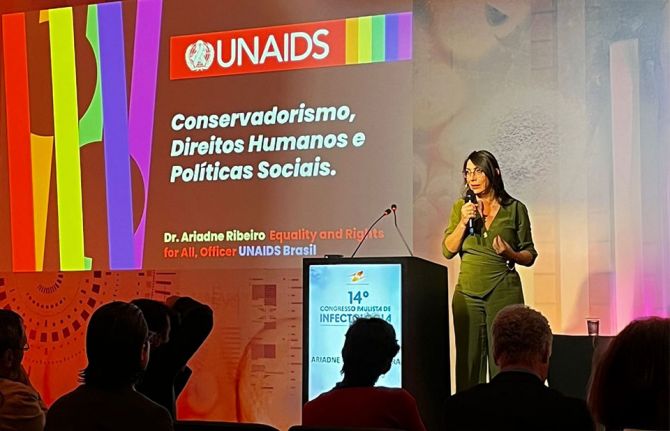 Upholding dignity for everyone: Ariadne Ribeiro Ferreira
Upholding dignity for everyone: Ariadne Ribeiro Ferreira

21 November 2024
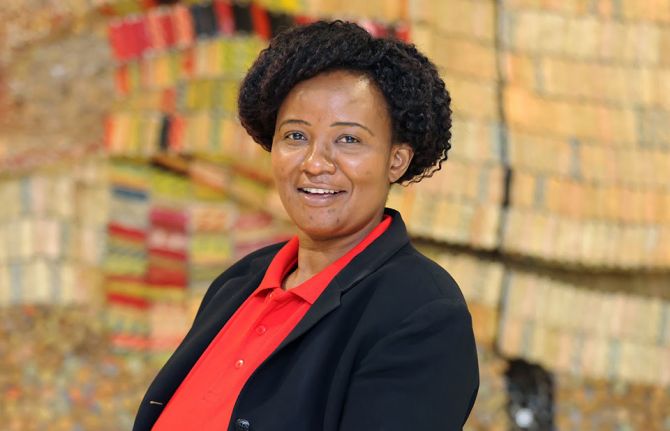 Evelyn Siula: A journey of strength and solidarity
Evelyn Siula: A journey of strength and solidarity
18 November 2024
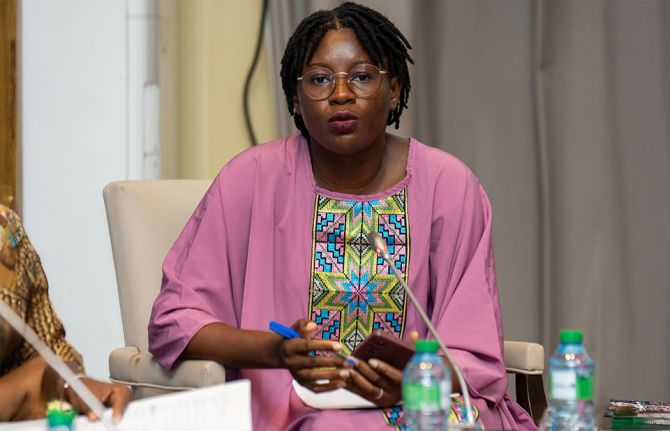 Empowering youth to lead Togo’s HIV response
Empowering youth to lead Togo’s HIV response

31 October 2024



